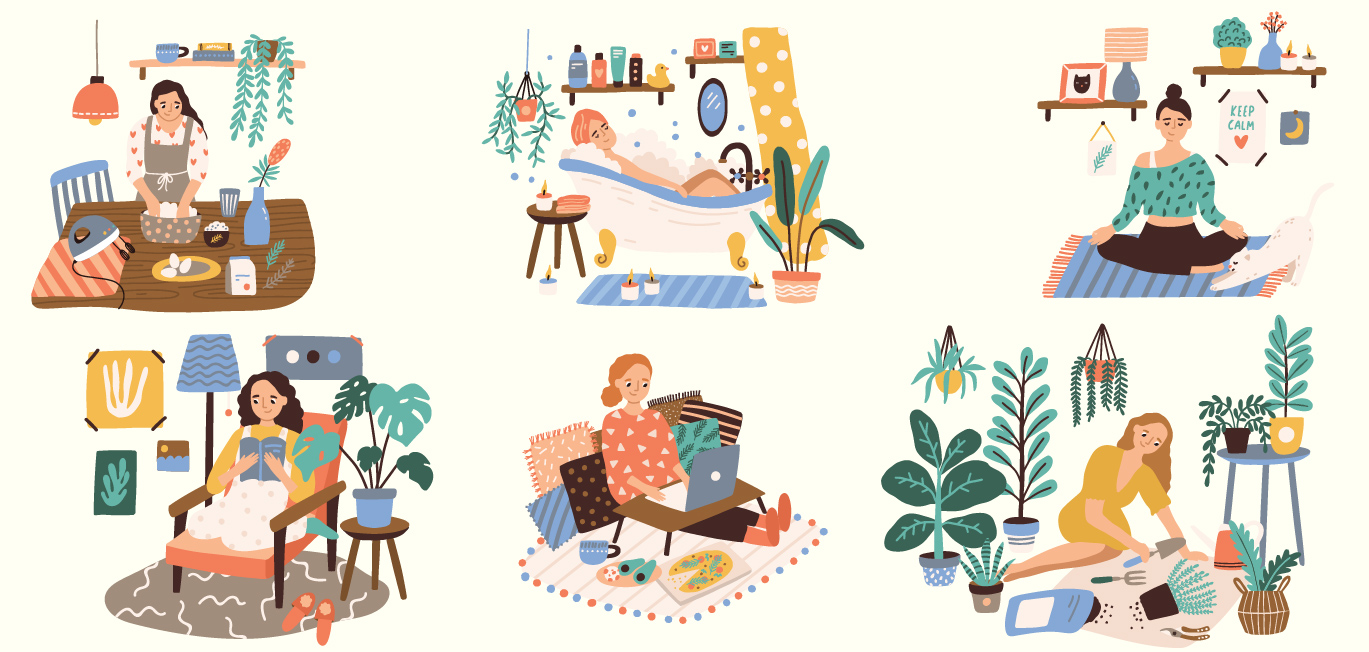
Human beings are inherently social creatures and interacting with others is essential for our wellbeing. However, spending time by ourselves also plays a vital role in preserving our mental health. While being around others has its rewards, it also comes with its own set of anxieties and stressors. Sometimes it may be hard to be in touch with who we are and what we feel when we are constantly surrounded by others. Hard as it may be, it is worthwhile, nonetheless.
Inhibited from bowling alone
A study titled, “Inhibited from Bowling Alone” by Rebecca Ratner, marketing professor and researcher, University of Maryland, found that individuals tend to avoid engaging in activities they enjoy, especially if they have to do them alone, as they fret over others’ perception of them. However, the research also revealed that people enjoy these activities when done alone and overestimated the benefits of doing them with others.
Loneliness vs purposeful solitude
“Consciously choosing to be by yourself is different from being forced into it. Loneliness is when it is forced upon us, but solitude is intentional and has immense mental health benefits.” — Mannya Chandy, psychologist, Mangaluru
It is important to distinguish between loneliness and intentional solitude. Mannya Chandy, psychologist from Mangaluru, notes that intentionally choosing solitude has mental health benefits while loneliness is imposed on us. Despite the collectivist culture, she emphasises the importance of spending purposeful time alone for personal growth and well-being.
Did you know that changing our thoughts about a situation can change how we feel about it? This is called reappraisal. A study by researcher Micaela Rodriguez from Harvard University, found that intentional solitude reduced negative emotions and increased positive ones.
Deepening our relationships with ourselves
Arushi Gupta, Delhi-based counselling psychologist, emphasises the importance of solitude in deepening our relationships with ourselves. “Spending time alone is necessary to reflect on who we are, what we want, and it helps us prioritise ourselves,” she says. Solitude, she says, helps us be aware of how we exist. “It helps us reclaim our space and our sense of self. One becomes self-aware by being in touch with themselves.”
Anjali Karunakaran, 23-year-old lawyer based in Sheffield, United Kingdom, says, “Spending time by myself is the only way I can process what is happening in my life. It is how I solidify my entire perception of the world and my interactions with others .” It helps her form opinions outside of what other people think, making her empathetic towards others.
The connect between solitude and emotions
A research conducted by Lisa Prescott Dixon from Brigham Young University, aiming to study the effects of alone time on wellbeing, found that intentionally spending time alone (including away from social media) enables one to regulate their emotions. It helps in building the necessary tools to cope with stressful situations and leads to improved mental health and wellbeing.
Twenty-six–year-old Meghna Senapati, business associate from Bhubaneswar, says that solitude helps her deal with anxiety. “As an anxious person I like to take out some time to organise my thoughts later at night. This practice has made me calmer in extremely emotional situations. I get very angsty if I’m constantly surrounded by people and I crave that time alone which helps me feel calmer and more at peace.”
Solitude and our relationships
Lack of purposeful solitude might affect not only us, but also those around us.
Gupta further says, “A lot of clients come with issues in relationships, because they lose that space of individuality in relationships and that causes problems. Sometimes, if we can’t connect with ourselves, it can leave us feeling agitated, dissatisfied, and annoyed which creates conflicts in relationships.”
“If I am not able to carve out time for myself, it makes me restless and impatient,” adds Karunakaran.

















